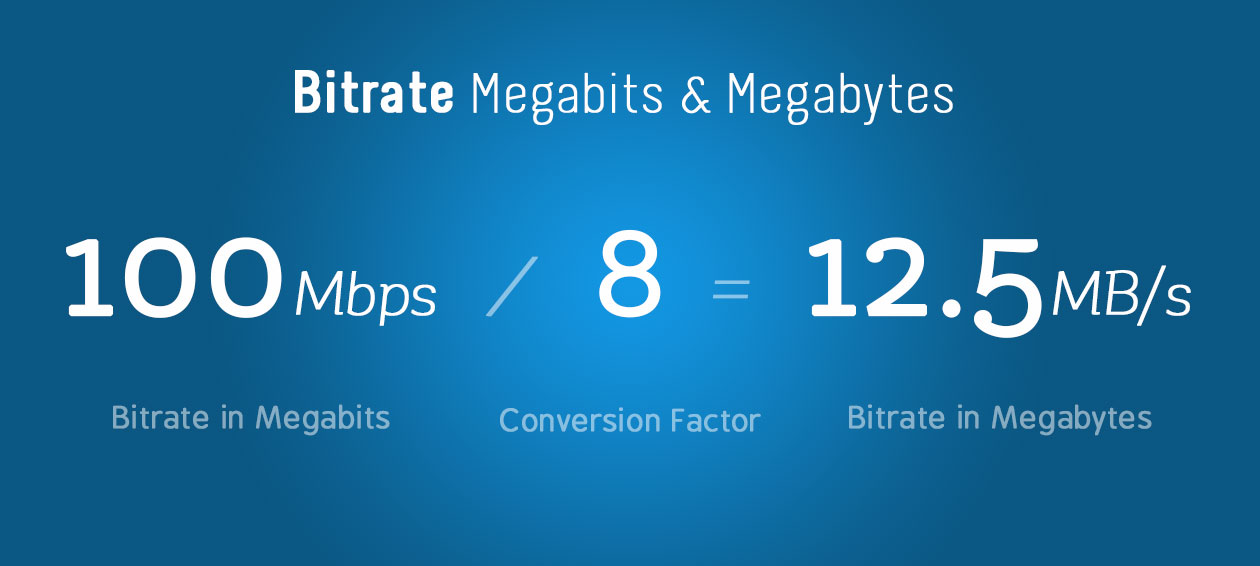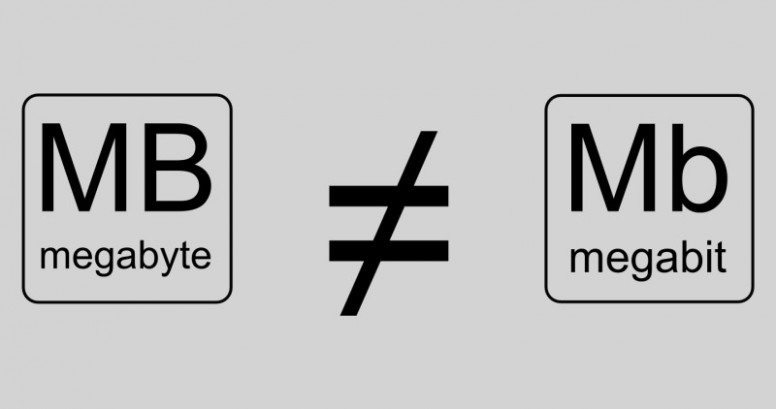Are you baffled by the confusing concepts of megabits and megabytes, or Mbps and MBps? Every time you compare internet plans and options, do you find yourself scratching your head in confusion? Don’t worry; deciphering these complex terms is easier than it seems. In this blog post, we’ll take a closer look at megabits vs megabytes to uncover their differences – as well as why they are so important when it comes to choosing an efficient internet plan. We’ll cover topics like what Mbps really means and how reliable Download Speeds affect user experience. By the end of this post, you should be able to make an informed decision about which option better meets your needs!
Why It Is Important to Understand the Distinction Between Mbps and MBps
The crucial difference is that Mbps refers to data transfer speeds, while MBps refers to the amount of data transferred in a second. Mbps is a measure of how quickly data can be downloaded or uploaded to and from the internet. On the other hand, MBps tracks how much data can be transferred in one second. This distinction is critical to understand when shopping for an internet plan. If you want to stream high-quality video content, for example, you’ll need a higher Mbps speed. If you’re interested in downloading large files and documents quickly, you’ll want to look at the MBps speed.
Related Link: What to Do During an Internet Outage
How to Calculate the Speed of an Internet Connection in Mbps and MBps

Calculating the speed of your internet connection is relatively straightforward. Both Mbps and MBps speeds will be stated on the plan you want to purchase. Mbps is the more commonly used metric by internet service providers, so it appears on most plans. You can easily convert between the two speeds by dividing Mbps by eight. For instance, an internet speed of 100 Mbps equates to 12.5 MBps. Understanding this conversion is helpful when comparing internet plans to ensure you pick one that matches your needs.
Need more information regarding your Internet choices? Come check out VMedia today.
Examples of Common Activities That Require Certain Mbps or MBps Speeds
Different online activities require different Mbps and MBps speeds. Streaming high-quality video content, such as 4K videos, requires speeds of at least 25 Mbps. Online gaming, on the other hand, requires speeds of at least 3 Mbps. If you’re someone who enjoys downloading content, whether it’s large files or documents, you’ll want to look for an internet plan with a high MBps speed. This high speed will enable you to download your files quickly and efficiently.
Tips for Choosing an Internet Service Provider Based on Your Specific Needs

When searching for an internet service provider (ISP), consider your daily internet usage habits. How often do you stream videos? How many devices will be connected to the internet simultaneously? These are two of the most crucial questions to answer when examining different ISPs. If you live alone, or if you only use the internet occasionally, a lower Mbps or MBps speed will suffice. However, if you have a family of four and everyone in the household has a different online activity, you’ll require a higher Mbps or MBps speed. Additionally, the location of your residence can play a factor in the internet service providers available to you.
Related Link: How To Switch Internet Providers: Simple & Easy Guide
The Future of Internet Speeds
It’s only natural that people would be giddy about the prospect of faster internet in the future. Future innovations and developments promise to bring about unprecedented increases in internet speed, making today’s slow connections seem positively glacial in comparison. For instance, fiber-optic internet uses light pulses to transmit data at speeds of up to 1 Gbps, making it the fastest type of internet currently available. As a result of its increased bandwidth and decreased latency, 5G connectivity is also expected to completely transform the internet as we know it. Those in outlying areas can now access the internet with the same speed and reliability as those in urban centers, all thanks to satellite technology. The internet plans available to consumers and how we use the internet will undoubtedly change as a result of these technologies. Accelerating internet speeds are the wave of the future.
Benefits of Having a Fast Internet Connection With a High Mbps or MBps Speed
Having a fast and reliable internet connection with a high Mbps or MBps speed has many benefits. It means that you can stream high-quality video content without buffering or connection issues. Fast internet speeds also improve download and upload speeds, enabling you to work more efficiently and saving you time. Additionally, having a high Mbps or MBps speed ensures that everyone in your home can use the internet simultaneously without experiencing any lag or connection issues.
Have any questions about what you can do on the internet? Get help now by contacting us today!
Understanding Megabits and Megabytes
It’s important to realize that understanding the fundamental differences between Mbps and MBps can help you in your day-to-day activities. When downloading software, streaming movies, or sending an email attachment, it is essential to know and understand how each measurement works and what it means for your personal or business purposes. Among many other implications, this knowledge might be a difference maker when deciding which internet plan is best for you. Not only could it result in a more efficient use of time and resources but could also mean added convenience and lower bills. Ultimately, ISP providers want customers to be informed about these measurements before signing onto different plans; being aware of these differences may make the decision easier when looking for the best option. With Mbps vs MBps clearly understood, it marks another step taken gladly towards understanding how technology works!
Related Link: Best TV Service Providers in Manitoba, Canada

